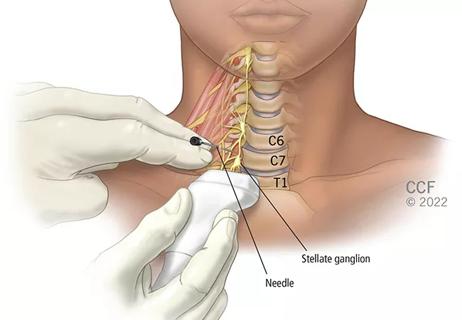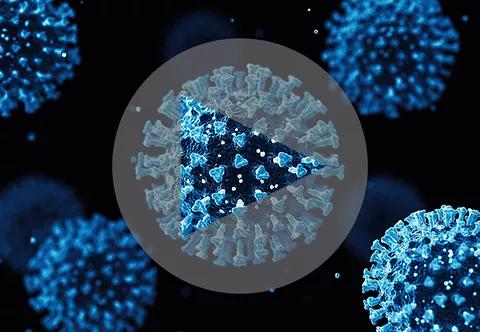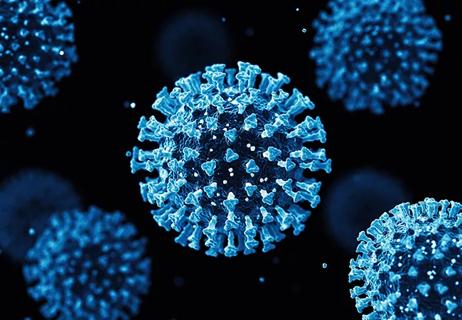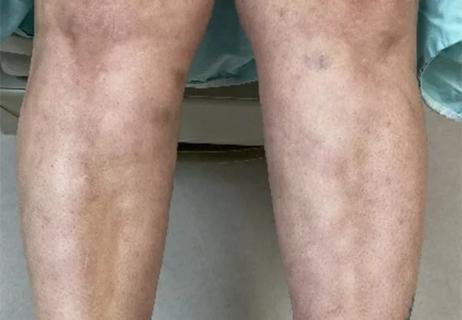Four major societies collaborate on coronavirus guidelines

As COVID-19 cases began appearing in the United States, alarmed gastroenterologists turned to the American Society for Gastrointestinal Endoscopy (ASGE) for help in understanding issues, such as:
Advertisement
Cleveland Clinic is a non-profit academic medical center. Advertising on our site helps support our mission. We do not endorse non-Cleveland Clinic products or services. Policy
They didn’t have to wait long to get the information they needed.
Cleveland Clinic’s John Vargo, MD, MPH, president of the ASGE, and New York University’s Mark Pochapin, MD, president of the American College of Gastroenterology, stepped up to the plate.
In less than 48 hours, they gathered relevant information on COVID-19 infection and recommendations for safe conduction of endoscopy and outpatient GI services. Their document, “COVID-19 Clinical Insights for Our Community of Gastroenterologists and Gastroenterology Care Providers,” was approved by the presidents of the American Gastroenterological Association and American Association for the Study of Liver Diseases and immediately disseminated.
“We decided we had to do something to help gastroenterologists wrap their arms around this dynamic landscape,” says Dr. Vargo.
The document contains known information about COVID-19 symptoms, known modes of transmission and best practices for protection against the virus.
“We sought to identify and risk-stratify which patients put our teams at increased risk,” says Dr. Vargo. “We want to take care of patients to the best of our ability, but we also want to keep our teams safe.”
However, it’s the safe endoscopy- and clinic-specific practices that practitioners are likely to find most valuable. The advice covers a wide range of topics including pre-screening patients, isolating COVID-19-positive endoscopy patients, advising patients taking immunosuppressant drugs and maintaining appropriate separation of patients in the endoscopy unit.
Advertisement
The hunger for information spawned weekly webinars that have attracted more than 1000 participants.
The first webinar, held on March 17, was a primer on the coronavirus. The second, held on March 26, was aimed at keeping practices afloat during the pandemic. The third webinar, which was held on April 3, was devoted to PPE.
Anyone may review the webinars or participate in future ones on www.asge.org. They are archived for future viewing and can be accessed from the front page of the ASGE website.
A popular feature of the webinars is a chat board that allows viewers to send questions to the presenters.
Questions that cannot be covered in the allotted time are answered by an ASGE physician dedicated to this purpose.
The necessity to obtain accurate information rapidly also spawned the creation of a COVID-19 response management team comprised of members of ASGE committees, who continuously scan the landscape and communicate with members.
“We are now fast-tracking articles about COVID-19, conducting rapid review and turnaround and posting them on our website in 48 to 72 hours,” says Dr. Vargo.
The ability to rapidly take in, vet and disseminate information is unprecedented.
“It’s incredibly beneficial for practitioners,” he says. “Our four GI societies are working closely together to make sure our GI community is connected. That’s a great thing.”
Advertisement
Advertisement

Patients report improved sense of smell and taste

Clinicians who are accustomed to uncertainty can do well by patients

Unique skin changes can occur after infection or vaccine

Cleveland Clinic analysis suggests that obtaining care for the virus might reveal a previously undiagnosed condition

As the pandemic evolves, rheumatologists must continue to be mindful of most vulnerable patients

Early results suggest positive outcomes from COVID-19 PrEP treatment

Could the virus have caused the condition or triggered previously undiagnosed disease?

Five categories of cutaneous abnormalities are associated with COVID-19